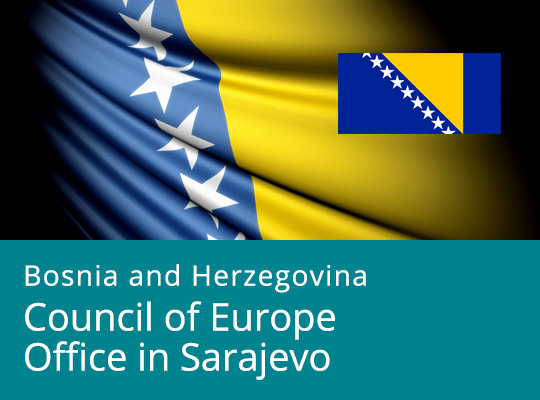The Council of Europe Office in Bosnia and Herzegovina has been implementing projects in the field of law enforcement and prison reforms for well over a decade. Its technical cooperation projects build on the standard setting and monitoring work of the Strasbourg-headquartered Organisation.
Focusing on each of the pillars of its core mandate - human rights, democracy and the rule of law - the Council of Europe bodies have reacted rapidly to various aspects of the on-going COVID-19 emergency crisis. One example is the guidance relating to persons deprived of liberty.
The European Committee for the prevention of torture and inhuman or degrading treatment or punishment (CPT) published its Statement of principles relating to the treatment of persons deprived of liberty on 20 March 2020. The Statement fully recognises the intense challenges for staff working in various places of deprivation of liberty, including police detention, prisons, immigration detention, psychiatric hospitals, social care homes, as well as newly-established quarantines.
Besides the fundamental safeguards against ill-treatment - having access to a lawyer, a doctor and the right to inform a close family member or a third person of their own choice of the fact of detention - additional protective measures should be applied in the present context. Persons deprived of their liberty should be screened for COVID-19 and provided with pathways to intensive care and additional psychological support as required. Special attention should be devoted to older persons and persons with pre-existing medical conditions, who are particularly exposed to risk.
In her Statement published on 6 April 2020, the Council of Europe Commissioner for Human Rights underlines just how urgent the steps are to protect the rights of prisoners in Europe.
“To prevent large-scale coronavirus outbreaks in places of detention, several member states initiated the release of certain categories of prisoners. Many others are adapting their criminal justice policies in order to reduce their prison population through various means, including temporary or early releases and amnesties; home detention and commutation of sentences; and suspending investigations and the execution of sentences”. The Commissioner urged all member states to make use of all available alternatives to detention whenever possible and without discrimination.
The treatment of people deprived of liberty also features prominently in the Toolkit for members of the Council of Europe published by the Secretary General on 7 April 2020, which provides guidance to governments for respecting democracy, rule of law and human rights in the context of the pandemic: ‘’The right to life and the prohibition of torture and inhuman or degrading treatment or punishment belong to the core rights under the Convention as they cannot be subject to any derogation, even in time of public emergency such as COVID-19’’. Moreover, Article 2 of the European Convention (the right to life) and Article 3 (prohibition of torture and inhuman or degrading treatment or punishment) require positive obligations to protect people in state care against deadly diseases.
These standards and principles were all promptly translated and communicated to the relevant authorities in Bosnia and Herzegovina.



